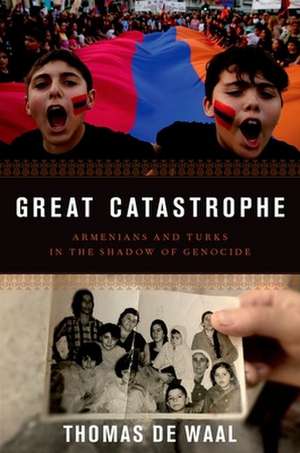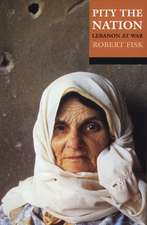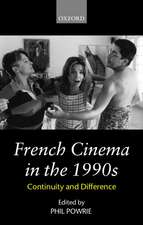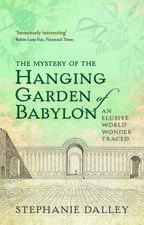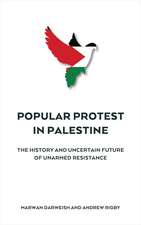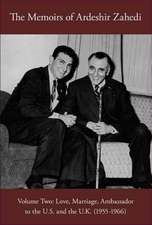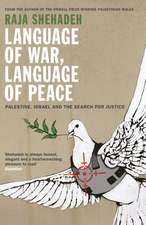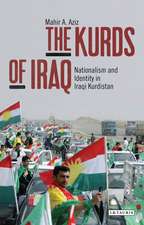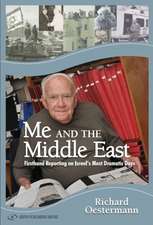Great Catastrophe: Armenians and Turks in the Shadow of Genocide
Autor Thomas de Waalen Limba Engleză Hardback – 26 mar 2015
| Toate formatele și edițiile | Preț | Express |
|---|---|---|
| Paperback (1) | 182.48 lei 3-5 săpt. | |
| Oxford University Press – 9 ian 2019 | 182.48 lei 3-5 săpt. | |
| Hardback (1) | 133.61 lei 31-37 zile | |
| Oxford University Press – 26 mar 2015 | 133.61 lei 31-37 zile |
Preț: 133.61 lei
Nou
Puncte Express: 200
Preț estimativ în valută:
25.57€ • 27.76$ • 21.48£
25.57€ • 27.76$ • 21.48£
Carte tipărită la comandă
Livrare economică 11-17 aprilie
Preluare comenzi: 021 569.72.76
Specificații
ISBN-13: 9780199350698
ISBN-10: 0199350698
Pagini: 320
Ilustrații: illustrations
Dimensiuni: 157 x 236 x 31 mm
Greutate: 0.57 kg
Editura: Oxford University Press
Colecția OUP USA
Locul publicării:New York, United States
ISBN-10: 0199350698
Pagini: 320
Ilustrații: illustrations
Dimensiuni: 157 x 236 x 31 mm
Greutate: 0.57 kg
Editura: Oxford University Press
Colecția OUP USA
Locul publicării:New York, United States
Recenzii
Great Catastrophe is an excellent book, remarkable notably for its in-depth discussion of the wisdom of formal acknowledgements, by law or otherwise, of the genocide. De Waal, by and large, ends up against the legal recognition of genocide, which he believes does not serve either historical truth or reconciliation. At the same time, he is critical of the stubborn denial of the genocide by Turkish officialdom: that final part of the book is an important contribution to the ongoing debate on memory and its mutual acknowledgement in relations among countries.
Thomas de Waal writes an excellent introduction to the subject, concentrating on how the post-genocide era has seen changes of attitude towards that tragedy.
[An] admirably fair-minded new book... [Great Catastrophe] admirably demonstrates how contestations over a history of atrocity continue to shape - and distort - today's politics.
Measured and meticulous.
de Waal's biggest contribution is his overview of the interlocking phases of Turkish and Armenian history after 1915. Trenchant and colourful anecdotes abound, along with some surprising facts.
[Offers] painful reading, compelling for the general reader, cathartic for Armenian and Turk alike.
[An] excellent study.
Sensitively judged - conversant in all the arguments, sympathetic to all perspectives, and full of interviews. It includes plenty of interest to both specialists and non-specialists.
De Waal is an engaging narrator
De Waal brings a much needed perspective to highly contested subject matter, providing a vivid sense of inter-connectedness of the histories and experiences of Armenians, Turks, Kurds and other minorities inhabiting the Ottoman/Russian borderlands.
What makes the book an invaluable contribution to the debate is his description of the long-term impact these traumatic events have had on Turks but especially on Armenians, and his effort to go beyond the question that has dominated the discussion for so long now: Should these events be labeled as genocide or not?
This magnificent book is the ideal introduction to a difficult subject. Historically rigorous but also full of compassion, it will educate the expert as well as the curious beginner. Highly recommended for Turks, Armenians, and everyone else.
Finely researched and elegantly written, Tom de Waal's historical travelogue is an empathetic guide to how Armenians and Turks can ease the century of pain and conflict that succeeded the genocidal Ottoman destruction of the Armenian presence in Anatolia in 1915.
Great Catastrophe is a frank, honest, humane effort to understand the events surrounding the Armenian Genocide and its aftermath. Thomas de Waal writes with empathy and respect for the various contending narratives while avoiding an equivocating 'balance' that dishonors the events and the victims themselves. Meticulously researched and scrupulously fair, it attempts to comprehend and recount for a broad audience the complexity and pain of the MedZ Yeghern in the hope that average Turks and Armenians might continue the process of recognition, repentance and reconciliation that will allow them both to heal and be redeemed.
Thomas de Waal writes an excellent introduction to the subject, concentrating on how the post-genocide era has seen changes of attitude towards that tragedy.
[An] admirably fair-minded new book... [Great Catastrophe] admirably demonstrates how contestations over a history of atrocity continue to shape - and distort - today's politics.
Measured and meticulous.
de Waal's biggest contribution is his overview of the interlocking phases of Turkish and Armenian history after 1915. Trenchant and colourful anecdotes abound, along with some surprising facts.
[Offers] painful reading, compelling for the general reader, cathartic for Armenian and Turk alike.
[An] excellent study.
Sensitively judged - conversant in all the arguments, sympathetic to all perspectives, and full of interviews. It includes plenty of interest to both specialists and non-specialists.
De Waal is an engaging narrator
De Waal brings a much needed perspective to highly contested subject matter, providing a vivid sense of inter-connectedness of the histories and experiences of Armenians, Turks, Kurds and other minorities inhabiting the Ottoman/Russian borderlands.
What makes the book an invaluable contribution to the debate is his description of the long-term impact these traumatic events have had on Turks but especially on Armenians, and his effort to go beyond the question that has dominated the discussion for so long now: Should these events be labeled as genocide or not?
This magnificent book is the ideal introduction to a difficult subject. Historically rigorous but also full of compassion, it will educate the expert as well as the curious beginner. Highly recommended for Turks, Armenians, and everyone else.
Finely researched and elegantly written, Tom de Waal's historical travelogue is an empathetic guide to how Armenians and Turks can ease the century of pain and conflict that succeeded the genocidal Ottoman destruction of the Armenian presence in Anatolia in 1915.
Great Catastrophe is a frank, honest, humane effort to understand the events surrounding the Armenian Genocide and its aftermath. Thomas de Waal writes with empathy and respect for the various contending narratives while avoiding an equivocating 'balance' that dishonors the events and the victims themselves. Meticulously researched and scrupulously fair, it attempts to comprehend and recount for a broad audience the complexity and pain of the MedZ Yeghern in the hope that average Turks and Armenians might continue the process of recognition, repentance and reconciliation that will allow them both to heal and be redeemed.
Notă biografică
Thomas de Waal is a writer and scholar on the Caucasus and Black Sea region and currently Senior Associate at the Carnegie Endowment for International Peace. He is the author of three books, including The Caucasus: An Introduction. From 1991 to 2000, de Waal worked as a newspaper journalist in Moscow and for the BBC World Service in London.
